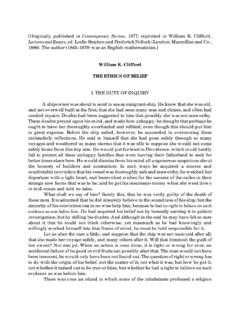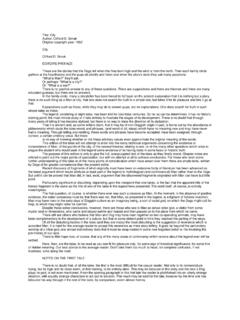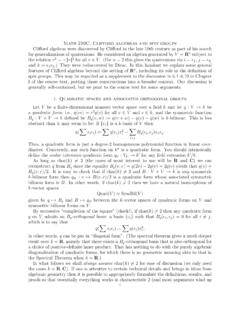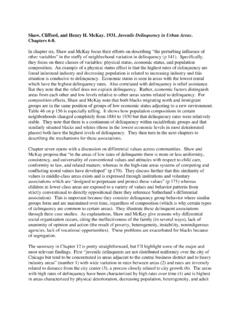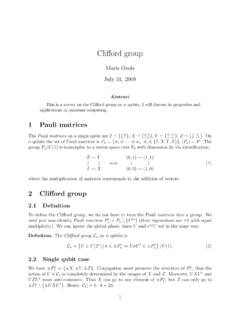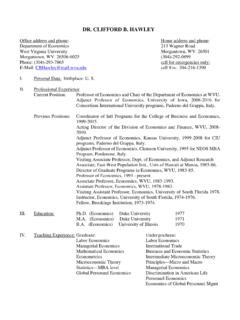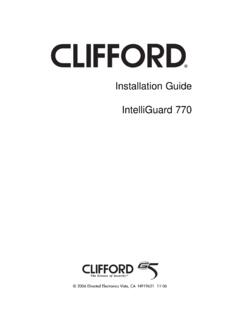Transcription of Michigan v. Clifford, 464 U.S. 287, 104 S. Ct. 641 (1984)
1 Michigan v. clifford , 464 287, 104 S. Ct. 641 (1984) FACTS: In the early morning hours of October 18, 1980, a fire occurred at the home of the Cliffords (Raymond and Emma Jean). By 7 , fire and police had cleared the scene. Within the hour, the fire investigator (Beyer) of the Detroit Fire Department received orders to investigate the fire. He and his partner arrived at about 1 that afternoon. At the time they arrived, they found a work crew on the scene, boarding the windows and pumping water from the basement. A neighbor indicated that the Cliffords, who were out of town, did not intend to return that day, that the neighbor had notified the insurance company about the boarding.
2 While waiting for the pump to drain the basement, the investigators found a Coleman fuel can in the driveway and seized it for evidence. Shortly afterward, they entered the house and began their investigation. The found a strong odor of fuel in the basement and two additional fuel cans. Under the fire debris, they found a crock pot with exposed wires and a timer. They continued to search the house finding additional indications of intentional arson. ISSUE: Was the search lawful? HOLDING: No DISCUSSION: The Court stated that the object of the search determines the type of warrant required. If the search was only to determine the cause an origin of a recent fire, an administrative warrant will suffice.
3 To get an administrative warrant, fire officials need show only that a fire of undetermined origin has occurred on the premises, that the scope of the proposed search is reasonable and will not intrude unnecessarily on the fire victim s privacy, and that the search will be executed at a reasonable and convenient time. However, [I]f the primary object of the search is to gather evidence of criminal activity, a criminal search warrant may be obtained only on a showing of probable cause to believe that relevant evidence will be found in the place to be searched. If evidence of criminal activity is discovered during the course of a valid administrative search, it may be seized under the plain view doctrine.
4 The purpose of an administrative search, which does not require a warrant, would be justified, by example, by the immediate need to ensure against rekindling, and may be no broader than required to achieve that end. The Court divided the searches into two: the initial, but delayed, search of the basement, and the more extensive search upstairs. In distinguishing the case from Tyler, the court stated that the privacy interests in a residence were much stronger than in a business, and the attempts to secure the residence indicated that the Cliffords expected privacy. Under the facts, an administrative warrant would have sufficed to search the basement.
5 Once the cause was determined, a criminal warrant would have been necessary. In the end, the Court only agreed to admit the fuel can found outside.
